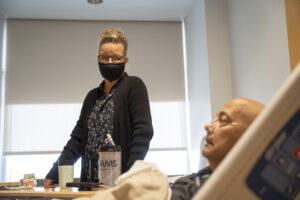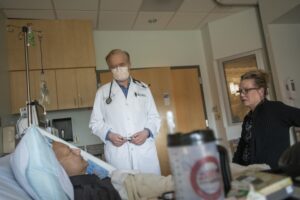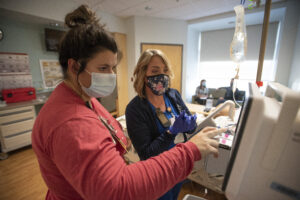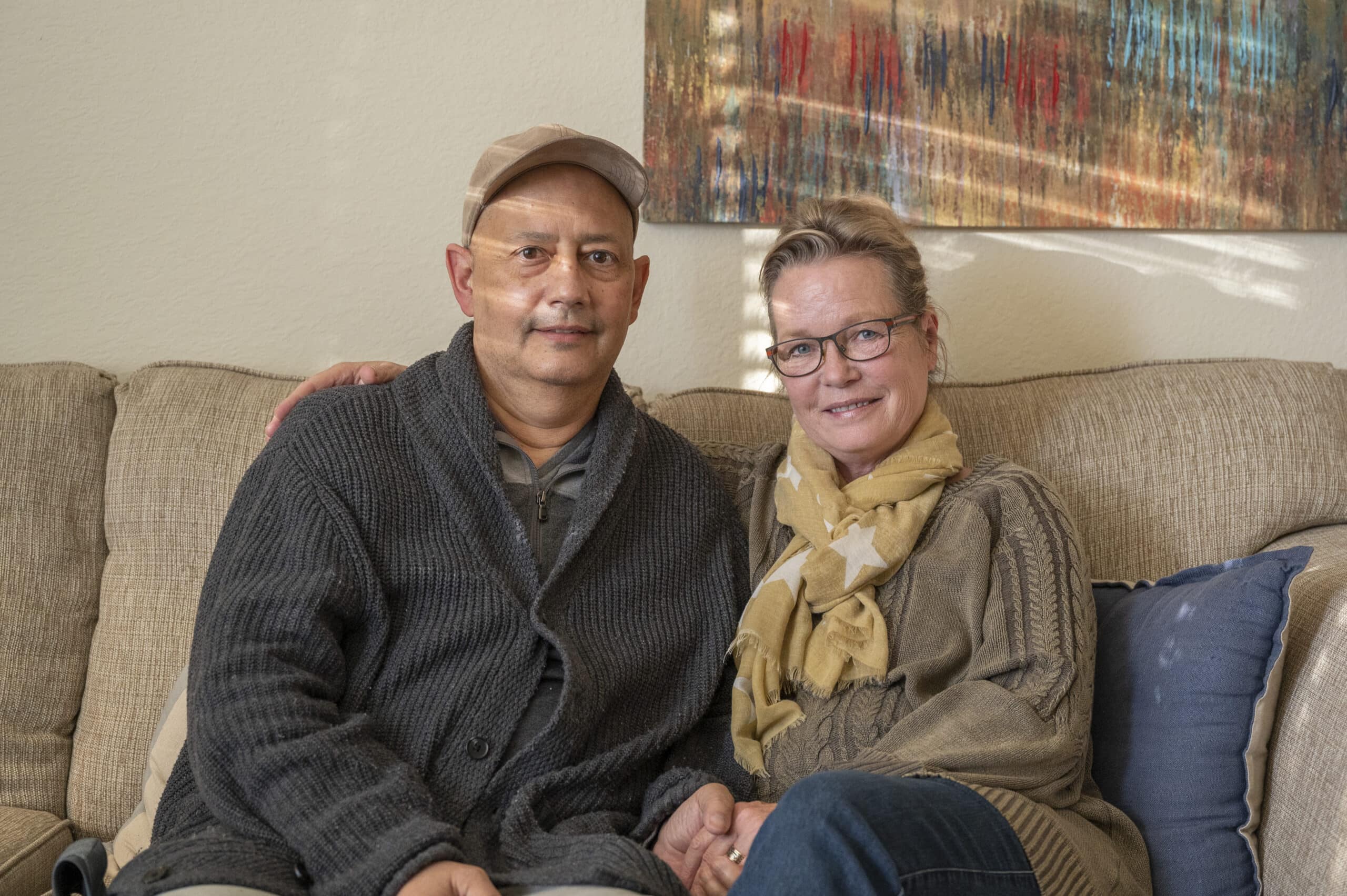First Myeloma Center Patient Receives Revolutionary New Therapy, Responds Well
|
Dave Puente of Elk Grove, California, became the first myeloma patient in Arkansas to receive the new chimeric antigen receptor (CAR) T-cell immunotherapy at the University of Arkansas for Medical Sciences (UAMS) Myeloma Center, the only medical facility in Arkansas currently offering the cutting-edge treatment.

“Dr. van Rhee said I was running out of options, and that I was a good candidate for the CAR T-cell treatment,” Dave Puente said.
UAMS announced in August 2021 that it had gained approval to provide cellular therapy to myeloma patients.
In this new treatment, the patients’ own immune cells are collected and shipped to a lab in New Jersey and genetically altered. Returned to the patient through infusion, the modified cells expand, multiply and seek out myeloma cells and kill them.
“Dave’s response has been remarkable,” said Frits van Rhee, M.D., Ph.D., clinical director of the Myeloma Center, a couple of weeks after Puente’s Nov. 1 treatment. “His blood work shows that the myeloma is no longer detectable,” he said.
“This is the dawn of a new day in treatment,” said van Rhee, who has treated Puente’s low-risk myeloma since 2011.
There is a great need for improving the care of myeloma patients who are difficult to treat and have had poor outcomes. This includes those who have had more than four lines of therapy, have failed other treatments and have advanced disease.

Frits van Rhee, M.D., Ph.D., visits with Lori Puente and her husband Dave, the first myeloma patient in Arkansas to receive CAR T-cell therapy treatment.Evan Lewis
Puente, 62, an electrical engineer, was diagnosed with myeloma in June 2008 after he broke his back getting out of bed. He and his wife, Lori, began researching the best treatment centers and soon chose the Winthrop P. Rockefeller Cancer Institute at UAMS.
They have traveled to Little Rock for treatments ever since. Dave Puente has had several treatments, including a tandem stem cell transplant. He was in remission for six years until his myeloma, which mutates to survive, returned.
“Dr. van Rhee said I was running out of options, and that I was a good candidate for the CAR T-cell treatment,” he said. The product, known as ABECMA by Bristol-Myers, is expected to be followed soon by additional ones from other pharmaceutical companies.
Puente was due to arrive in early fall for his stems to be harvested, but it was a challenge to get to Arkansas.
His myeloma worsened after he ceased treatments for two months to allow his body to create as many immune cells as possible for collection. Shortly before he was due to arrive, Puente fell down in excruciating pain, and he discovered a broken femur in his leg. He was supposed to remain home for six weeks of therapy and was advised against flying. But time was running out.
“Dr. van Rhee said, ‘You have to find a way to get here for this treatment,’” Puente recalled.

Nurses in the unit of the University of Arkansas for Medical Sciences where myeloma patients are treated prepare Dave Puente’s genetically modified cells to be infused back into him.
The CAR T-cell immunotherapy treatment is unique in that it requires no follow-up treatments of chemotherapy or maintenance. However, if a patient has received too much therapy, it is more difficult for the cells to work. The treatment can also cause nervous system problems, including seizures or tremors and other side effects, including a weakened immune system and an increased risk of infections.
“The continuity of care he received, with the same two nurses watching after him for several days in a row, was wonderful,” said Lori Puente.
“The hospital staff was tremendous,” Dave Puente said. “No matter what may have happened, they had a plan for dealing with it.”
He remained hospitalized for a week after the treatment for monitoring.
In addition to treating the patient, the Myeloma Center staff also cares for its caregivers, Lori Puente said.
“They all empower me,” she said. “They care about me and how I’m doing.”
Dave Puente did so well in the early days and weeks after his treatment, the couple were able to return home in early December, earlier than expected.
“I know that my battle with myeloma will never truly be over so I need to take this time to get in better shape so I can fight it again in the future,” Puente said. “I hope my story gives other patients, who aren’t where I am yet, more hope to hold on because help is coming for them too.”
The couple returns for a check-up in early 2022 after celebrating the holidays and spending time with their children and first grandchild, Savannah, who will have her first birthday soon.
They plan to celebrate the marriage of their daughter in Lake Tahoe this spring.
“She wants me to walk her down the aisle and to dance with her,” Puente said. “And I’m planning to do both.”
